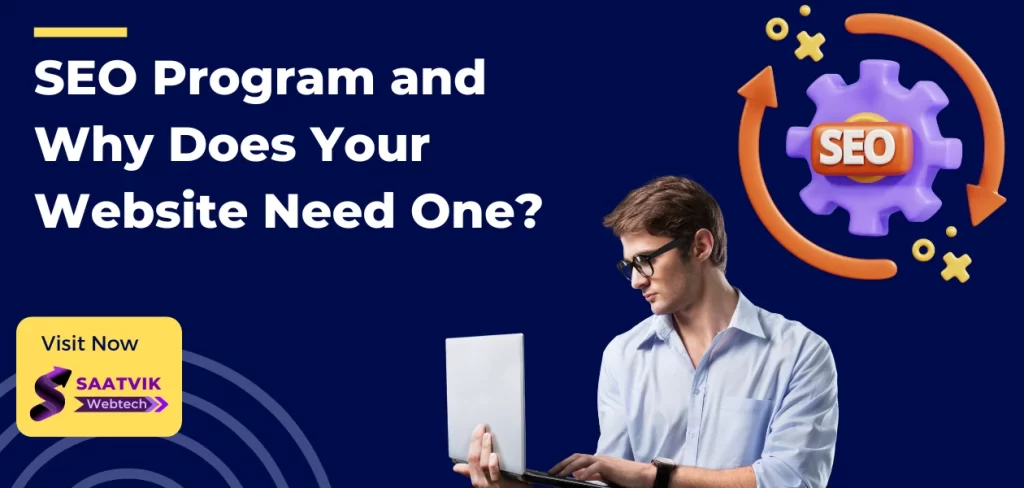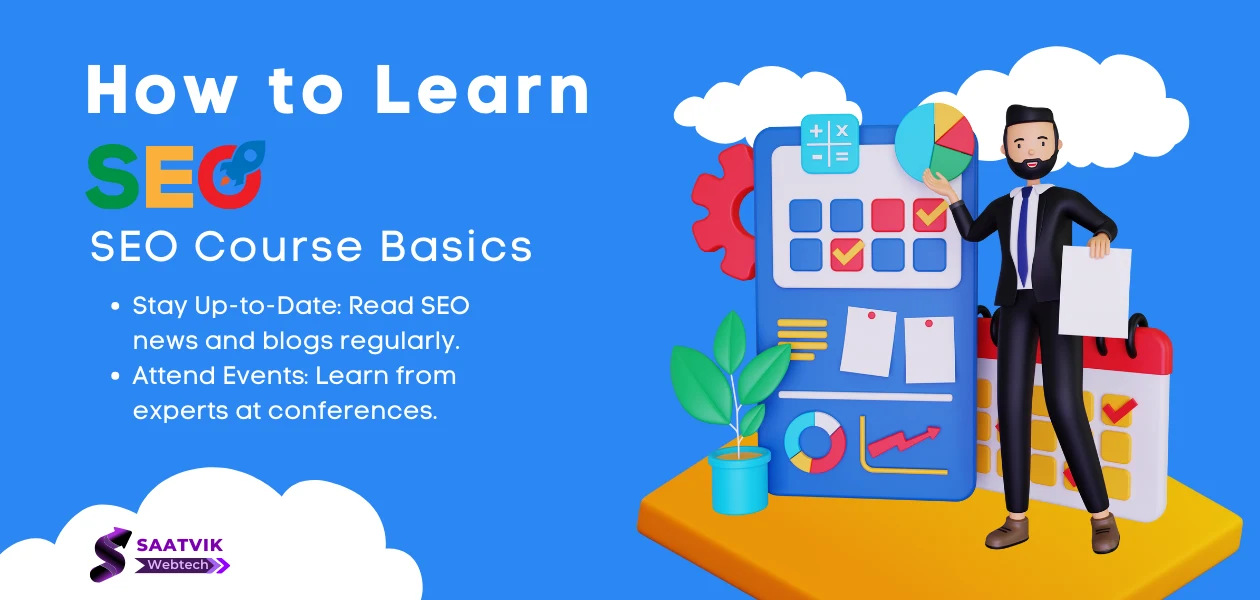Your Website’s Search Engine Compass: Unlocking the Power of SEO ProgramsImagine your website is a buried treasure, just waiting to be discovered. But in the vast ocean of the internet, how do people find it? That’s where SEO (Search Engine Optimization) comes in. It’s like your website’s own personal compass, guiding search engines like Google right to your hidden gem.
But what if you want an even more powerful tool? Something to chart the fastest course to those coveted top search results? That’s where SEO programs become your secret weapon.
Key takeaways:
- SEO is essential for ensuring your website gets found in the vastness of the internet.
- SEO programs streamline the optimization process, saving time and providing deeper insights.
- SEO guides search engines to your website, improving your chances of appearing in relevant search results.
- SEO success requires strategy, ongoing effort, and adapting to the ever-changing online landscape.
- SEO attracts targeted traffic by aligning your content with what your ideal audience is searching for.
- SEO programs give you a competitive edge by offering data and tools to outsmart competitors.
What is SEO Program?
- Clear Definition: Start with a simple, reader-focused explanation:”An SEO program is a powerful software suite that helps you optimize your website for search engines like Google. Think of it as your digital marketing toolkit, packed with features to boost your visibility and attract more potential customers online.”
Benefits Breakdown: Highlight the key reasons to use one:
- Discover the Right Keywords: Find out what people are searching for and the best terms to target for your business.
- Outsmart the Competition: Uncover your competitors’ strategies and learn how to outdo them.
- Become a Search Engine Favorite: Fix technical issues and create content that search engines love, improving your rankings.
Types of SEO Programs: Briefly introduce the main options:
- All-in-one SEO Platforms: Powerhouses like Ahrefs and SEMrush, offering a wide range of tools.
- Specialized SEO Tools: Perfect for focusing on specific tasks like keyword research (KWFinder) or website audits (Screaming Frog).
- Free SEO Tools: Great starting points like Google Search Console and AnswerThePublic.
Why Use an SEO Program?
- Get Found: Improve rankings so more people see your website when they search for what you offer.
- Data-Driven Decisions: Get insights into what’s working and what’s not, so you can make informed improvements.
- Save Time: Automate tedious SEO tasks and focus on the big picture of your content and strategy.
- Stay Ahead: Keep updated on search engine changes and adapt your approach for continued success.
So, what exactly is SEO?
Let’s break it down: SEO is the art and science of making your website so irresistible to search engines that they can’t help but show it off to the world. Think of it like this:
You offer amazing products, helpful services, and insightful information.
SEO helps you package it in a way that search engines understand and love.
Result? When people search for what you offer, your website shines at the top!
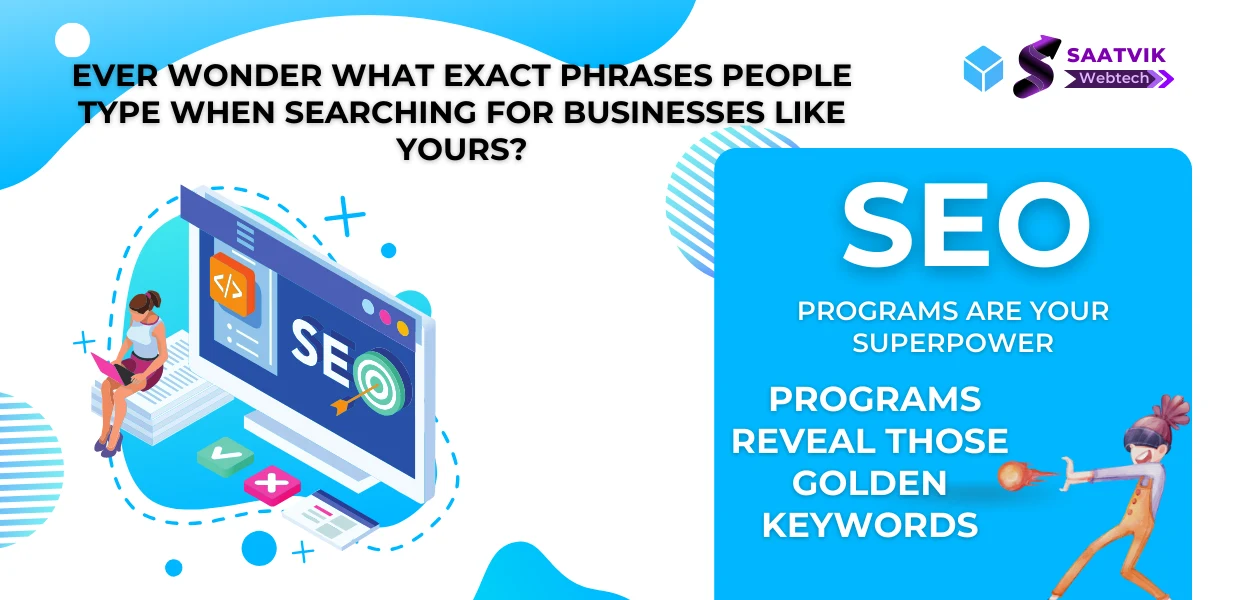 Why SEO Programs Are Your Superpower
Why SEO Programs Are Your Superpower
Think of SEO programs as your all-seeing, all-analyzing sidekick. They help you:
Discover the Magic Words: Ever wonder what exact phrases people type when searching for businesses like yours? SEO programs reveal those golden keywords.
Outsmart the Competition: Get the inside scoop on what your competitors are doing right (and wrong!).
Become a Search Engine Favorite: These programs offer a roadmap to fix hidden issues on your website that might be making search engines turn away.
How does an SEO program improve website rankings?
Think of an SEO program as your all-in-one website improvement assistant. It’s a software suite filled with tools that help you analyze, optimize, and track your website’s performance on search engines like Google. These programs empower you to make changes that boost your rankings and bring more visitors to your website.
Types of SEO Specializations
All-in-One SEO Platforms: These are the powerhouses of the SEO world, offering a full spectrum of tools. Popular choices include Ahrefs, SEMrush, and Moz Pro. They’re great if you want a comprehensive solution.
Specialized SEO Tools: If you need to laser-focus on a particular aspect of SEO, these tools are your go-to. Examples include Screaming Frog (for technical website audits), KWFinder (for keyword research), and Hunter.io (for finding email addresses to aid in link building).
Free SEO Tools: Budget-friendly or new to SEO? Plenty of free tools offer valuable features. Google Search Console, Ubersuggest, and AnswerThePublic are fantastic options to get started without breaking the bank.
Why invest in an SEO program?
Get Found Online: SEO programs carefully analyze your website, pinpointing areas to make it more appealing to search engines. This leads to higher rankings and increased traffic.
Data-Driven Decisions: SEO programs give you a wealth of data about your website’s performance. Use this to make informed decisions rather than relying on guesswork.
Save Time: Hours spent on manual SEO tasks can be cut down drastically with automation features like keyword research, identifying broken links, and monitoring your rankings.
Stay ahead of the curve: SEO is constantly evolving. Programs help you stay up-to-date with algorithm changes and identify new opportunities before your competitors.
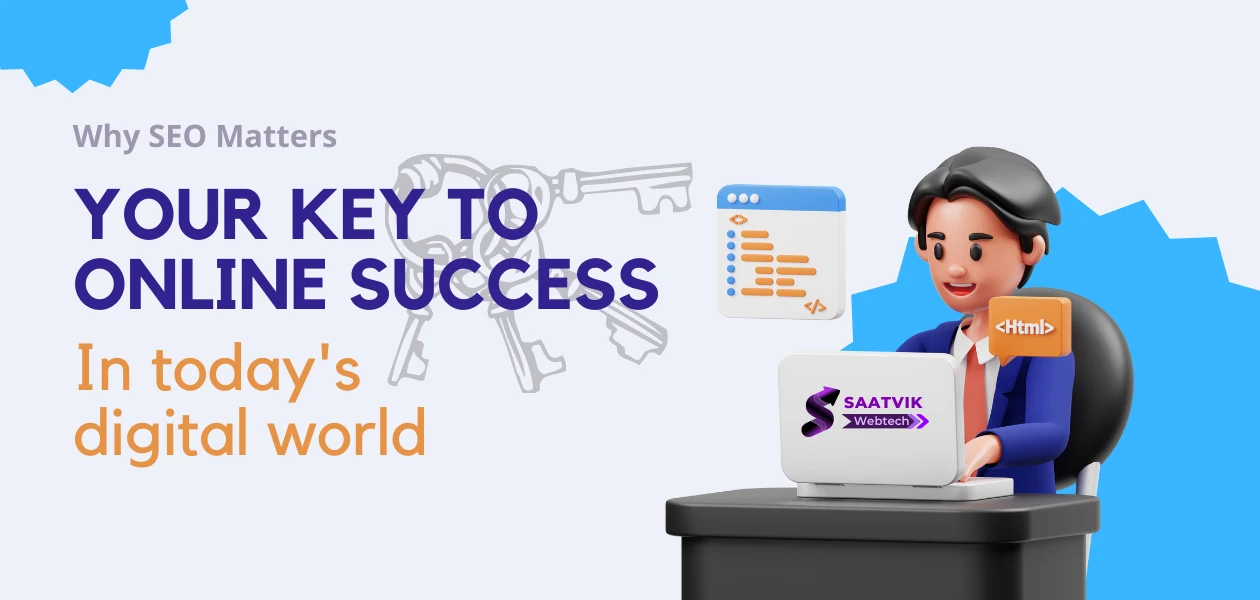 Why SEO Matters: Your Key to Online Success
Why SEO Matters: Your Key to Online Success
In today’s digital world, your website is your storefront. But if no one can find it, what’s the point? That’s where SEO comes in.
Here’s why SEO is crucial for your business:
- Get Discovered: Search engines are the #1 way people find things online. SEO makes sure your website shows up when potential customers are searching.
- Outrank the competition: With good SEO, you can beat out competitors and become the top choice for your target audience.
- Build Trust and Credibility: High search rankings signal to people that your website is a reliable, valuable resource.
- Understand What Your Customers Want: SEO data tells you the exact words and phrases people use to search. This lets you create content that truly resonates with them.
- Long-lasting Results: Unlike paid ads, SEO keeps working for you, bringing in consistent traffic over time.
- The Bottom Line: SEO isn’t a luxury, it’s a necessity. It gives you a fighting chance to succeed in the crowded online marketplace.
Ready to unlock the power of SEO? Let’s get started!
Tips for This Section
- Add visuals: A simple icon or graphic next to each point can make it even more scannable.
- Tailored Example: Can you replace one bullet point with a super-specific benefit relevant to your blog’s niche? Example: If you write about tech, it could be “Target the Right Buyers: SEO helps people searching for ‘best noise-canceling headphones’ find your reviews.”
SEO Advantages That Pay Off
- Lasting results: Unlike paid ads, SEO keeps working even after a campaign ends.
- Targeted traffic: SEO focuses on people already interested in what you offer.
- Boost all your marketing: SEO insights help you write better ads, social media posts… everything!
Why It’s Not Just About Google
Sure, Google’s important, but successful SEO means going beyond traditional search engines. Here’s why:
- Amazon shoppers search on Amazon. Your products need to be optimized for their search system.
- YouTube is a search engine too! Videos need SEO love to get found.
The Bottom Line
SEO is an investment that pays off. Higher search rankings mean more website visitors, more sales, and a stronger online presence for your brand.
Let me know if you want a deeper dive into how SEO works or any specific aspect of it!
What is SEO, and How Does It Work?
If you landed on this page after searching “What is SEO?” you’ve experienced the power of SEO firsthand! Here’s how it happens:
- Expertise Matters: This article is on Search Engine Land, a trusted source of SEO knowledge. It also has lots of links from other websites, which shows Google that it’s a valuable resource. These factors helped it rank #1 for years.
How SEO Works: The Big Picture
SEO success comes from a combination of:
- People: The SEO experts are doing the work.
- Processes: making the work efficient and organized.
- Technology: The tools SEOs use.
- Actions: The actual changes made to improve a website.
Understanding Search Engines (like Google)
- Crawling: Search engines use ‘bots’ to find new web pages via links.
- Rendering: They figure out how the page will look in your browser.
- Indexing: Good pages get stored in a giant database.
- Ranking: Complex rules decide which pages best answer a search question.
Important Things To Know
Each platform is different: SEO for YouTube isn’t the same as Google SEO.
- Research is key: Know your audience, their problems, and what keywords they search.
- Have a plan: Set goals, track progress, and choose the right tools.
- Get your hands dirty: create great content and optimize your website.
- Keep an eye on things: Track your website’s health and performance.
- Analyze and report: Use data to make smart improvements.
SEO is a journey, not a sprint!
Search engines, competitors, and user needs change all the time. Always be learning, testing, and improving your website to stay ahead.
How to Learn SEO
- Stay Informed: Read SEO news blogs (like Search Engine Land!) and follow experts online.
- Attend Events: Connect with other SEOs at conferences and meetups.
- Practice makes perfect. Start by building your website and experimenting with different tactics.
- SEO is a Journey, Not a Sprint
Key Improvements in This Version
- Clearer Title: Targets the exact question people are asking.
- Early Definition: Readers know what SEO is right away.
- Simplified Explanations: Cut down on jargon, focused on the core concepts.
- Actionable Points: Emphasize steps the reader can take.
- Invitation to Learn More: Shows a path to further knowledge.
Types of SEO
- Technical SEO: Optimizing the ‘behind-the-scenes’ of your website so search engines can easily understand it.
- On-Site SEO: Making the content on your website appealing to both visitors and search engines.
- Off-Site SEO: Building your brand’s reputation and visibility online – getting links from other sites, managing reviews, being active on social media, etc.
Technical SEO: Your Website’s Foundation
- Easy to Crawl: Make sure your website’s structure and navigation help search engines find all your pages.
- User Experience Matters: Fast loading times, mobile-friendliness, and good design are all crucial.
- Structured Data: This special code helps search engines better understand your content.
On-Site SEO: Content is King (and Queen!)
- People First, Then Search Engines: Write helpful, high-quality content that solves problems for your audience.
- Use Keywords Naturally: Include the words people actually search for, but don’t overdo it.
- Keep it Fresh: Update your content regularly, providing accurate and timely information.
Off-Site SEO: Build Your Brand’s Buzz
- Links Matter: Getting links from other reputable websites signals to search engines that your site is valuable.
- Be Everywhere Your Customers Are: Optimize profiles on review sites, relevant directories, and social media with your brand info.
- Reviews and Reputation: Encourage positive reviews and respond thoughtfully to all feedback.
How SEO Works (The Simplified Version)
- Search Engines Crawl: ‘Bots’ find new pages by following links.
- They ‘Read’ Your Site: They analyze text, images, and code to understand your content.
- Indexing: Good pages get stored in a giant database.
- Ranking: Complex rules decide which pages best answer each search question.
Important Note: Each platform is different. Optimizing for YouTube isn’t the same as optimizing for Google.
The online world is constantly changing! To stay ahead, always be learning, testing, and improving your website.
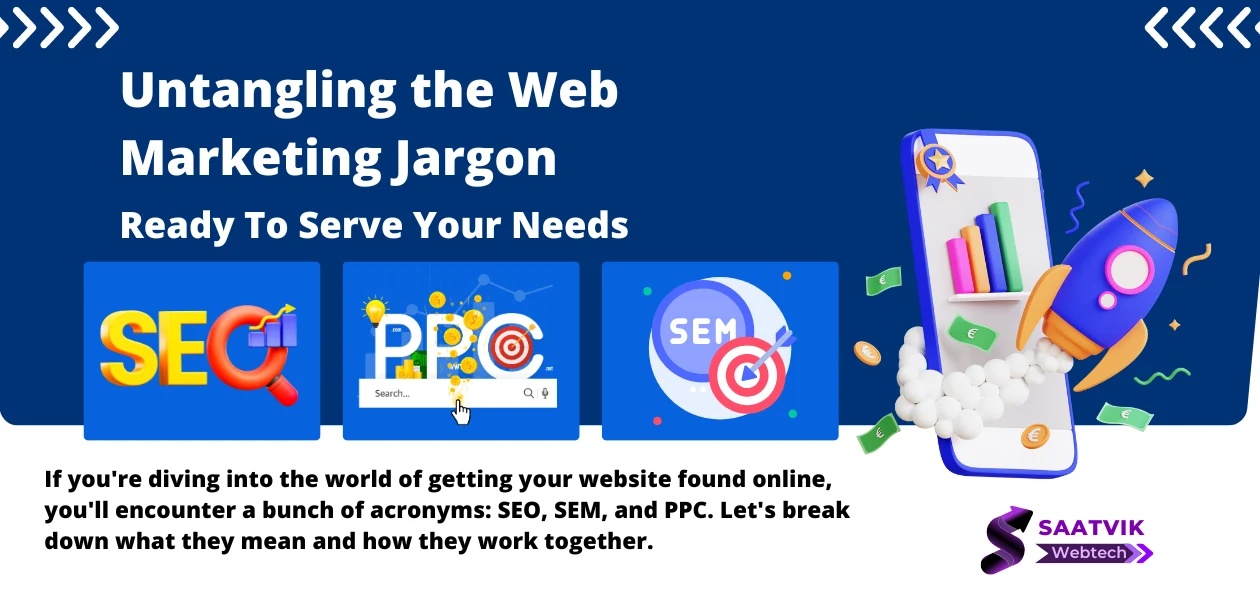 SEO vs. SEM vs. PPC: Untangling the Web Marketing Jargon
SEO vs. SEM vs. PPC: Untangling the Web Marketing Jargon
If you’re diving into the world of getting your website found online, you’ll encounter a bunch of acronyms: SEO, SEM, and PPC. Let’s break down what they mean and how they work together.
The Big Picture: Search Engine Marketing (SEM)
Think of SEM as the master umbrella. It’s all about using search engines to market your website.
SEM includes both paid and unpaid strategies to boost your visibility.
SEO: The Organic Side
SEO (Search Engine Optimization) is the process of making your website so appealing to search engines like Google that they rank it high in the results for free.
It’s like making sure your website speaks the search engine’s language for the best chance of appearing at the top.
PPC: Paying to Play
- PPC (pay-per-click) is a type of advertising where you pay each time someone clicks on your ad in search results.
- You bid on the keywords you want to target. The higher your bid, the better your ad position.
- SEO vs. SEM vs. PPC: The Simplified Breakdown
Think of a coin:
- SEM is the whole coin.
- SEO is one side (the free, organic results).
- PPC is the flip side (the paid ads).
SEO and PPC aren’t competitors; they’re teammates!
SEO is a long-term investment. Results take time but can be incredibly powerful in the long run.
PPC: instant visibility. It starts driving traffic right away but costs money per click.
The Best Strategy? Combine Them! (If your budget allows.)
Key Takeaway: Don’t limit yourself! The most effective online marketing approaches use SEM as the big-picture strategy, with both SEO and PPC being crucial parts of the puzzle.
The Challenge of SEO Without Programs
While you can do SEO manually, it comes with significant limitations:
- Time Drain: Tasks like in-depth keyword research or competitor analysis are incredibly tedious without dedicated tools.
- Limited Data: Free SEO tools offer a glimpse, but programs provide deeper insights crucial for effective strategies.
- Hard to Keep Up: Search engine best practices change frequently. Programs make monitoring updates far easier.
How to Choose the Right SEO Program
- What are your needs? Are you focusing on technical SEO, keyword research, or a bit of everything?
- What’s your budget? Options range from free to hundreds of dollars a month.
- How tech-savvy are you? Some programs have a steeper learning curve.
- What features are essential? Make a list of must-have tools.
- SEO Programs vs. SEO Tools: What’s the Difference?
These terms are often used interchangeably. Generally, SEO programs refer to broader software suites, while SEO tools refer to single-purpose utilities.
Popular Program Features (With Examples)
- Keyword Research Tools: Discover search terms people use and their potential traffic value (e.g., ‘best gluten-free cupcakes Chicago’).
- Site Auditing Tools: Identify website errors harming your rankings (e.g., broken links, slow loading speeds).
- Backlink Analysis: See who links to your website and your competitors, revealing opportunities.
- Rank Tracking: Monitor your progress and see how you stack up in search results.
Tips for New SEO Program Users
- Start with free trials. Explore different programs to find the right fit.
- Learn the Basics First: Understanding SEO fundamentals will maximize your program’s effectiveness.
- Focus on a Few Tools: Master core features before getting overwhelmed.
Areas for Expansion
- Challenges of Doing SEO Without Programs: Add a section highlighting the potential pitfalls of relying solely on manual SEO. This further emphasizes the value proposition of SEO programs. Here’s a potential direction:
- The Time Investment: Explain how manual keyword research, competitor analysis, etc., can be extraordinarily time-consuming.
- Limited Data: Discuss how programs provide depth that free tools or guesswork lack.
- Evolving Algorithms: Mention how keeping up with SEO best practices is difficult without dedicated tools.
- Popular Program Features (With Short Examples): Instead of just listing features, include brief explanations and use cases:
- Keyword Research Tools: “Discover the search terms people use to find businesses like yours and see which ones offer the most potential traffic (e.g., targeting ‘best gluten-free cupcakes Chicago’ vs. the broader ‘gluten-free cupcakes’).”
- Site Auditing Tools: “Identify website errors that may hinder your search rankings (e.g., broken links, slow loading speeds).”
- Tips for New Users: Close with a section offering user-friendly advice for those new to SEO programs. This makes the content even more actionable. Suggestions could include:
- Start with Free Trials: Encourage trying free plans to get a feel for the program’s interface.
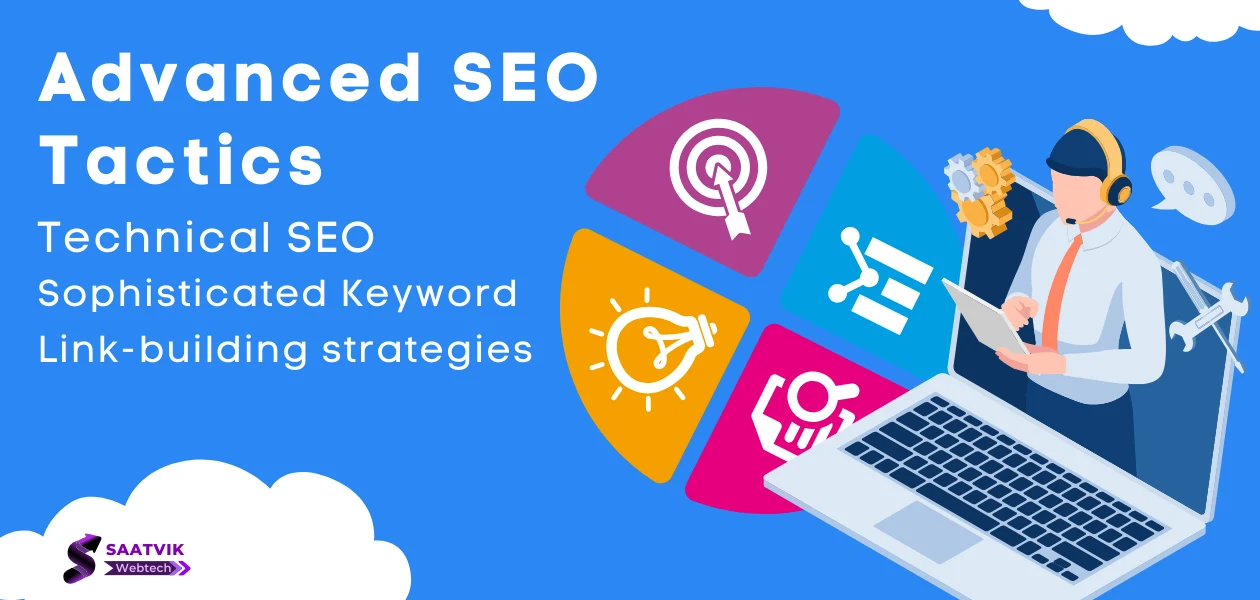 Advanced SEO Tactics: Beyond the Basics
Advanced SEO Tactics: Beyond the Basics
You’ve mastered the fundamentals of SEO. Now it’s time to level up with techniques that give you a serious competitive edge. Remember, search engines are always evolving, so consider this your starting point for ongoing exploration.
Technical SEO: Deep Dive
- Site Speed Optimization: Fast websites make users and search engines happy. Tools like Google PageSpeed Insights: (https://developers.google.com/speed/pagespeed/insights/) or GTmetrix (https://gtmetrix.com/) diagnose issues and offer solutions.
- Advanced Structured Data: Go beyond basic schema. Check out Google’s Rich Results guide: [https://developers.google.com/search/docs/guides/intro-structured-data] for opportunities to make your search results stand out with reviews, product info, FAQs, and more.
- JavaScript SEO: Modern websites are heavily reliant on JavaScript. Make sure search engines can render your content correctly. Tools like Google’s Mobile-Friendly Test: [https://search.google.com/test/mobile-friendly] offer insights. Some SEO programs also have auditing features for this specific purpose.
- Log File Analysis: This gets technical, but your website’s log files are a goldmine of crawl behavior insights. Screaming Frog’s Log File Analyser: https://www.screamingfrog.co.uk/log-file-analyser/ can help you understand if search engines are facing any roadblocks.
Sophisticated Keyword Research
- Search Intent Analysis: Go beyond search volume. Understand why people use certain terms (informational, transactional, etc.). This ensures your content matches the goal of the searcher. Tools like [https://alsoasked.com/] show common related questions.
- Competitor Gap Analysis: See what keywords your top competitors are ranking for that you’re not. Tools within SEO programs often have dedicated sections for this. Semrush’s Keyword Gap: [[invalid URL removed]] tool is another option.
- Semantic SEO: Search engines are getting smarter at understanding language nuances. Explore tools like [https://frase.io/] to optimize content for related concepts and synonyms, giving your content more depth.
Link-building strategies
- Quality over quantity: A few high-authority links matter more than tons of low-quality ones. Spend your link-building efforts wisely.
- Broken Link Building: Find relevant websites with broken links pointing to outdated content. Offer your up-to-date resource as a replacement. Tools like Ahrefs’ Broken Link Checker (https://ahrefs.com/broken-link-checker ) are great for this.
- Unlinked Mentions: Monitor the web for mentions of your brand or products that haven’t turned into links yet. Reach out and politely suggest it! There are specialized tools for this, or you can set up Google Alerts: [https://www.google.com/alerts].
- Guest Posting (Strategically): Contribute high-quality content to relevant sites in your niche for backlinks and exposure. Always prioritize websites that are genuinely valuable to your audience.
Important Reminder: Advanced tactics still need to align with overall SEO best practices. No amount of technical optimization can save poor-quality content or a spammy backlink profile.
How to Develop Your SEO Skills: The Best Ways to Learn
SEO is like any skill—the more you practice, the better you get! Here’s how to jumpstart your learning:
- Build your website: Choose a topic you love. Experiment with different SEO tactics and track what works – and what doesn’t. This hands-on experience is invaluable.
- Go Beyond the Basics: SEO involves more than just keywords. Explore the bigger picture with our list of “13 Essential SEO Skills You Need to Succeed.”.
- Attend a Conference: The Search Marketing Expo (SMX) offers dedicated SEO sessions with top experts. Check them out in June (SMX Advanced) and November (SMX Next).
More Ways to Learn SEO
The internet is your oyster! Explore:
- Blogs and websites: Stay updated on the latest strategies and changes.
- Videos and Podcasts: Learn on the go with visual and audio content.
- Conferences and meetups: Network with other SEO professionals.
- Courses and Training: Get structured learning for serious skill boosts.
- Online Groups and Forums: Get help and share knowledge with others.
A Word of Caution
SEO information changes quickly! Some sources might be outdated or just plain wrong. Always be critical of what you read.
Ready to take control of your online success? Start mastering SEO today!
- Unlock the potential of SEO programs: Discover powerful tools to streamline your efforts and get the insights you need.
- Outsmart the competition: Uncover the secrets your competitors don’t want you to know and gain a strategic advantage.
- Become an SEO expert: Take your website to the next level and let your business shine in search results.
Frequently Asked Questions
Q: What exactly is an SEO program, and how does it differ from a regular SEO tool?
A: SEO programs are comprehensive suites of tools designed to cover all aspects of search engine optimization. They go beyond individual SEO tools, which usually focus on a single task (like keyword research). Think of it like a multi-tool vs. a single screwdriver!
Q: I’m on a tight budget. Can I still do SEO effectively?
A: Absolutely! There are many free SEO tools that offer powerful features. Start with these to get a good foundation, and as your website grows, you can consider investing in a paid program for even deeper insights.
Q: How long does it take for SEO to start showing results?
A: SEO is an ongoing process, not a quick fix. While you might see some early improvements, significant results usually take a few months to develop. Think of it as building long-term authority for your website.
Q: Can an SEO program guarantee top rankings?
A: Be wary of anyone making absolute promises in SEO. Search engines change their algorithms constantly, and factors like competition play a huge role. Good programs will give you the data and tools to significantly improve your chances, but it still requires effort and strategy.
Q: I’m not very tech-savvy – are SEO programs right for me?
A: There’s a program for every skill level! Many popular options have user-friendly interfaces. Start with one offering free trials and great tutorials. As you master SEO basics, you’ll feel comfortable navigating more advanced features.
